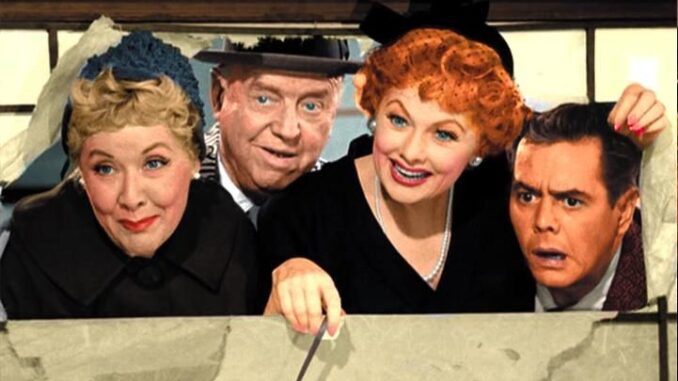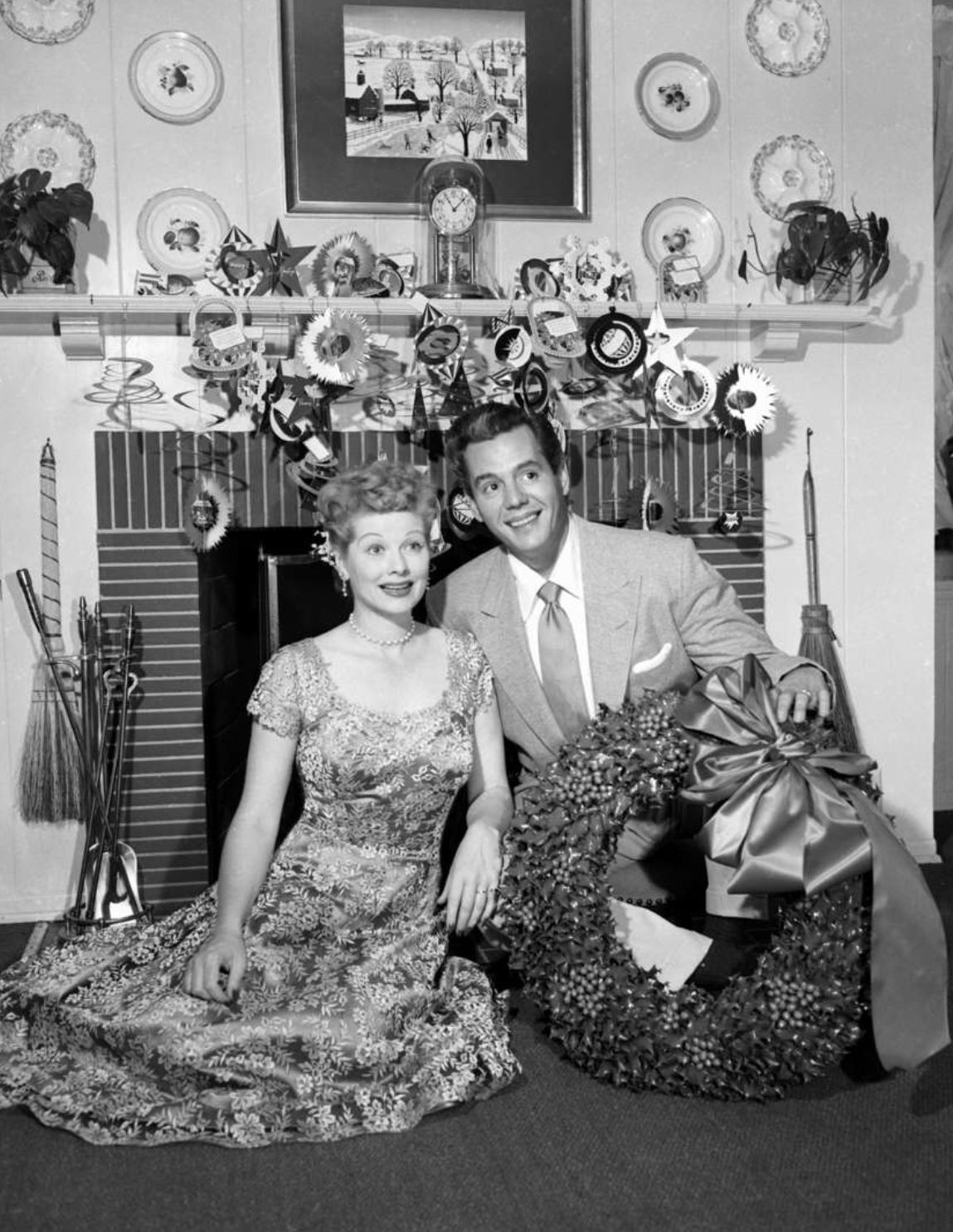
More than seven decades have passed since I Love Lucy first aired in October 1951, yet the laughter it created still echoes around the world. The iconic sitcom, starring Lucille Ball and Desi Arnaz, wasn’t just a television hit — it became a cultural milestone, a symbol of joy, resilience, and the power of human connection.
Even in 2025, the show’s black-and-white episodes continue to inspire, entertain, and educate new generations. But what exactly makes I Love Lucy so timeless? The secret lies not only in its humor but in its courage, authenticity, and heart — the rare combination that turned a sitcom into a global legend.
The Courage to Be Different
When I Love Lucy premiered, television was still in its infancy. Most shows were straightforward, conservative, and predictable. Lucille Ball dared to break every rule.
Her character, Lucy Ricardo, was unlike any woman seen on TV at the time. She was ambitious, mischievous, and gloriously imperfect — always chasing wild dreams, often failing spectacularly, but never giving up. She wanted to be more than a housewife, and through comedy, Ball gave voice to the ambitions of millions of women who felt the same.
“Lucy was ahead of her time,” says media historian Jennifer Keishin Armstrong. “She showed that women could be funny, flawed, and powerful — sometimes all in the same scene.”
Her courage extended beyond the screen. Ball and Arnaz’s insistence on portraying an interracial marriage — something virtually unheard of in 1950s America — was a radical act. Together, they normalized love across cultural lines long before the rest of the entertainment world caught up.
Building Television’s Golden Blueprint
Behind every laugh, I Love Lucy was rewriting the rules of how television was made. Lucille Ball and Desi Arnaz were not only performers but innovators who built the foundation of modern TV production.
Their company, Desilu Productions, pioneered the multi-camera filming system that captured scenes from different angles simultaneously — a technique that became the standard for sitcoms, from Friends to The Big Bang Theory.
They also insisted on filming in front of a live audience, giving the show its spontaneous energy and genuine laughter. Every mistake, every stumble, and every moment of Lucy’s comedic genius was met with real reactions — the kind that can’t be faked.
“When you heard the audience laugh, you laughed too,” said TV director James Burrows. “It was like being part of something bigger — a shared joy.”
Through these innovations, I Love Lucy turned television from a novelty into an art form.
Humor with Heart
At its core, I Love Lucy wasn’t just about jokes. It was about love, friendship, and persistence — universal themes that still resonate. The humor was grounded in human truth: misunderstandings, ambitions, insecurities, and the chaos of everyday life.
Lucy’s wild antics — whether stomping grapes, disguising herself to sneak into Ricky’s show, or juggling chocolate candies — always came from a place of sincerity. She wasn’t cruel or calculating; she was driven by hope and curiosity.
That emotional honesty made audiences care. They didn’t just laugh at Lucy; they laughed with her. She embodied the joy and frustration of trying, failing, and trying again — something everyone can relate to.
“Lucy Ricardo’s secret power,” wrote critic Emily Yahr, “was that she failed spectacularly and still made us cheer for her.”
In a world where comedy often relies on sarcasm or cynicism, I Love Lucy remains refreshingly kind. Its laughter heals rather than mocks — a rare quality that keeps it relevant today.

A Woman Who Changed Everything
Lucille Ball was far more than a comedian — she was a trailblazer who reshaped Hollywood. After I Love Lucy, she became the first woman to run a major television studio, leading Desilu Productions to produce some of the most groundbreaking series of the 20th century, including Star Trek and Mission: Impossible.
She defied every limitation placed on women in her era — as an actress, producer, and business leader. Her work ethic and vision proved that women could succeed not only on screen but also in the boardroom.
“She wasn’t just funny,” said actress Debra Messing. “She was fierce, strategic, and ten steps ahead of everyone else.”
Ball’s legacy opened doors for countless female comedians — from Carol Burnett and Lily Tomlin to Tina Fey and Amy Poehler — who continue to cite her as a guiding light.
The Global Reach of Lucy’s Laughter
One of the most remarkable things about I Love Lucy is how it transcends culture and language. The show has been translated into dozens of languages and broadcast in more than 70 countries. Decades later, clips of Lucy’s comic routines still go viral on social media, reaching audiences who weren’t even alive when the show aired.
Why? Because laughter, like love, is universal. You don’t need to understand English to appreciate Lucy’s panicked expressions, frantic gestures, or perfectly timed pratfalls. Her comedy speaks the language of humanity itself.
Even modern audiences raised on digital humor find joy in Lucy’s physical precision. In an age of irony and filters, her unfiltered honesty feels revolutionary again.
The Legacy of Courage and Compassion
The enduring legacy of I Love Lucy lies in its balance of fearlessness and warmth. Lucille Ball taught generations of performers that comedy could be brave without being cruel, powerful without losing its heart.
She was living proof that laughter could be both entertainment and empowerment — that it could make people see the world differently while also helping them survive it.
In today’s entertainment landscape — often crowded with noise and negativity — the spirit of I Love Lucy serves as a reminder that the greatest stories are the ones that make us feel seen, loved, and uplifted.
“Lucy made people believe they could mess up and still matter,” said comedy writer Mindy Kaling. “That’s why she’ll never fade away.”
A Legend That Lives Forever
Seventy years on, I Love Lucy remains more than a TV show; it’s a cultural heartbeat — a reminder of how laughter connects us. From the chocolate factory to the grape-stomping barrel, from Lucy’s dream of stardom to her messy but devoted marriage, every moment carries a spark of timeless truth.
Lucille Ball once said, “I’m not funny. What I am is brave.”
She was both — and that bravery turned her into a legend whose laughter still lights up the world.